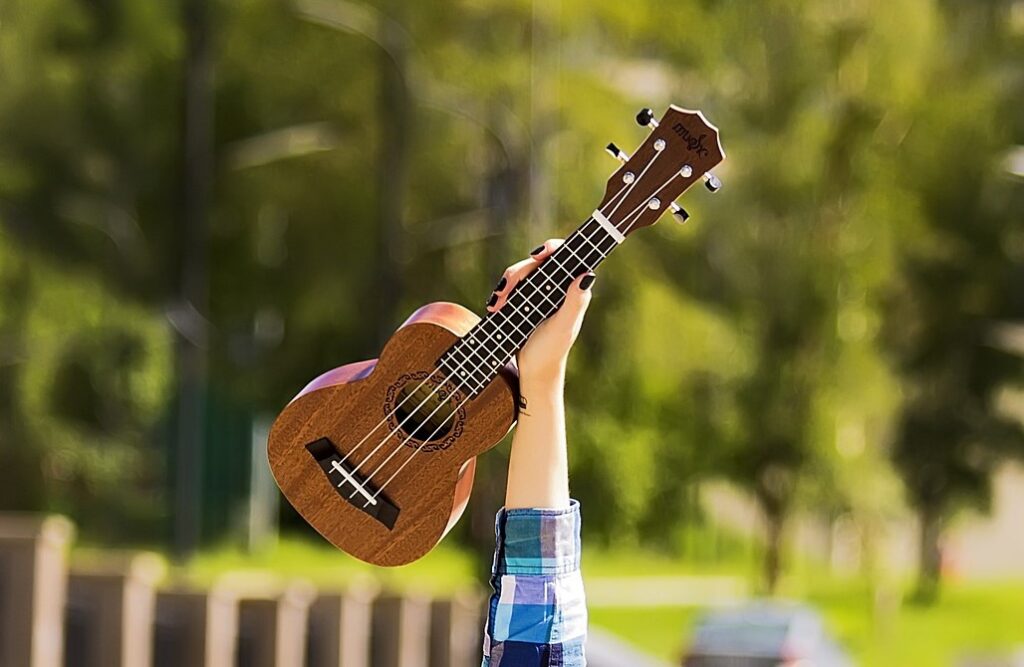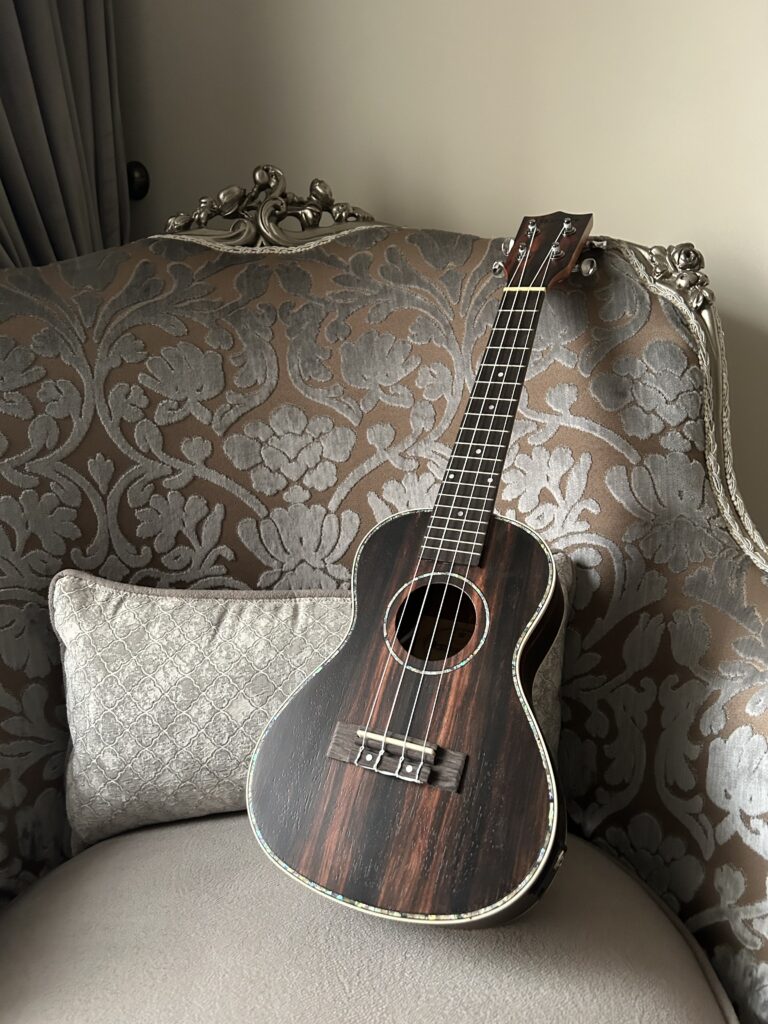Joyful as it was, choosing my first ukulele wasn’t an easy task. There were endless models to choose from, and I didn’t have much experience back then. Luckily, I chose the perfect one and decided to help you do the same!
To choose a ukulele, you should consider its size, its material, and your budget. Below, I’ll discuss each point in detail.
How to Buy a Ukulele: 4 Features You Should Consider!
Here’s a list of the most important features you should consider before buying your first uke.
Ukulele Size
Ukuleles come in a myriad of sizes, but only three are common among beginners: soprano, concert, and tenor.
Soprano

Soprano ukuleles are the smallest, most affordable, and easiest to play out of the three types, so they’re a wise choice for beginners. However, you should try playing one before buying to make sure it isn’t too small for your hands.
Soprano ukes have a scale length of 13 inches and produce bright and joyful tones that are considered by many to be the ‘classic’ uke sound.
Concert

Concert ukuleles are slightly larger than sopranos (not the mafia family) and produce deeper sounds. They have a scale length of 15 inches, so they’re more comfortable to play for people with big hands.
Concert ukes are more suitable for intermediate players than beginners, but they aren’t impossible to learn in the beginning. If you’re up for a challenge, I recommend getting one.
Tenor
Tenor ukuleles are larger than the above two types, with a scale length of 17 inches. Thanks to the extra inches, the strings are more tensioned on a tenor uke, so it produces deeper and fuller sounds.
Tenor ukes are attractive for beginners because of their resonant tones. But, in my opinion, they’re challenging to play because they have a wider dynamic range and more playable notes than concerts and sopranos. Only consider getting one if you have experience in ukes.
Ukulele Material

Ukuleles are either made from solid wood or laminate, with the former carrying a much higher price tag. Solid wood ukes come with premium-quality craftsmanship and produce rich tones with minimal vibrations that get deeper with age.
On the other side, laminate ukes are made from synthetic materials with a thin layer of wood, hence the affordable prices. They produce vibrating and bright sounds that appeal to beginners more than professionals.
I personally think that laminate ukes are more than fine for beginners, so don’t stretch your budget too far to get a solid wood one. You can get one when you master your skill and want to upgrade your tones a bit.
Ukulele Strings
Ukuleles come with various string types, one of the most famous being Aquila strings. They’re made from a synthetic gut material that highly resembles the quality of the natural version but without the high price. These strings are durable and can stay with you for years, so I definitely recommend them if you’re a beginner.
Another type that’s making its way into the market is fluorocarbon strings. I haven’t tried these, but I heard a lot of praise about their mellow tones and durability.
Your Budget
Ukuleles come in a wide range of prices, ranging from $30 to thousands. The lower side of this range will give you beginner-friendly ukes that are made with low-quality materials and produce loud, vibrating tones. Meanwhile, the higher side will get you an authentic Hawaiian koa or mahogany uke with out-of-this-world craftsmanship and deep, rich tones.
From my experience, I think beginners should stick to a price range of $50-$150. This price will get you a mid-quality uke that produces lively tones and stays with you till you outgrow it.
If you spend too little, the low quality of the uke might discourage you from continuing your learning journey. And if you spend too much, you’ll be out of your depth playing such a premium-quality instrument.
Extra Tips to Purchase the Perfect Uke for You!
Besides the above considerations, there are a few tips that’ll help you land the perfect uke. Here’s a quick roundup of them:
- Get a ukulele with a protective bag and straps to be able to move around freely with it
- Always try the frets of the uke you’re buying to make sure they aren’t too cramped or too far away for you
- Consider the music genre you want to play, as sopranos are more suitable for traditional Hawaiian music, and tenors and concerts are more suitable for classical and jazz
- If you have a limited budget, buy a ukulele with a curved back, as it’ll produce more volume and a richer tone without carrying an expensive price tag
- Only consider an electric uke if you plan on performing in concerts because they produce louder tones but lack the authentic experience of an uke
To Wrap Up
Choosing your first ukulele can be challenging, but I have a few pointers that can make your decision easier.
First, you should consider the ukulele’s size, material, and type of strings you want, based on your expertise and personal preference. Then, you should set aside a reasonable budget without underdoing or overdoing it, and that’s all!
